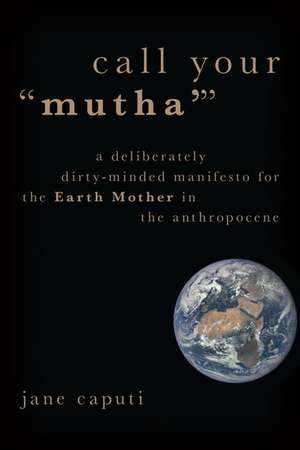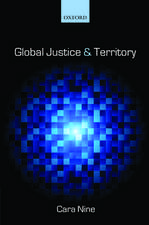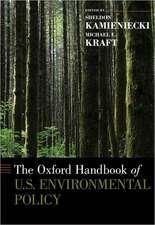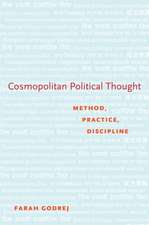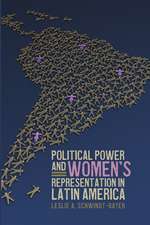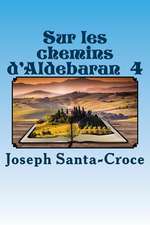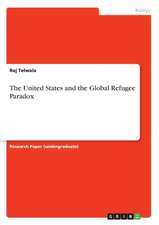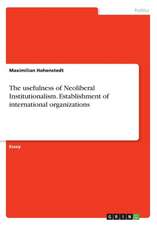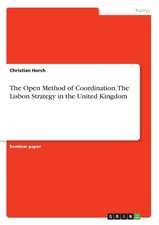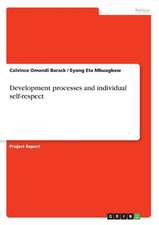Call Your "Mutha'": A Deliberately Dirty-Minded Manifesto for the Earth Mother in the Anthropocene: Heretical Thought
Autor Jane Caputien Limba Engleză Paperback – 30 sep 2020
| Toate formatele și edițiile | Preț | Express |
|---|---|---|
| Paperback (1) | 219.41 lei 10-16 zile | +195.09 lei 7-11 zile |
| Oxford University Press – 30 sep 2020 | 219.41 lei 10-16 zile | +195.09 lei 7-11 zile |
| Hardback (1) | 580.57 lei 31-37 zile | |
| Oxford University Press – 30 sep 2020 | 580.57 lei 31-37 zile |
Preț: 219.41 lei
Nou
Puncte Express: 329
Preț estimativ în valută:
41.99€ • 45.59$ • 35.27£
41.99€ • 45.59$ • 35.27£
Carte disponibilă
Livrare economică 21-27 martie
Livrare express 18-22 martie pentru 205.08 lei
Preluare comenzi: 021 569.72.76
Specificații
ISBN-13: 9780190902711
ISBN-10: 019090271X
Pagini: 354
Dimensiuni: 137 x 208 x 23 mm
Greutate: 0.42 kg
Editura: Oxford University Press
Colecția OUP USA
Seria Heretical Thought
Locul publicării:New York, United States
ISBN-10: 019090271X
Pagini: 354
Dimensiuni: 137 x 208 x 23 mm
Greutate: 0.42 kg
Editura: Oxford University Press
Colecția OUP USA
Seria Heretical Thought
Locul publicării:New York, United States
Recenzii
Caputi's book is a dynamic journey of connections, tracing from prehistory to the present the development of the Anthropocene and its wide and intersecting consequences. In charting and elucidating the Anthropocene, Caputi draws from a vital, vibrant entanglement of prose, music and poetry, of theory and dreamscape and art and activism.
"[A] dynamic work of scholarship that seeks nothing less than to reverse ecocide and halt the death march of the Anthropocene by gathering a chorus of diverse voices to speak on behalf of Mother Nature-Earth.
Jane Caputi looks at two major "myths" of the Earth, one ancient and one contemporary, and uses them to devise a manifesto for the survival of nature--which includes human beings--in our current ecological crisis. These are the myths of Mother Earth and the Anthropocene.... Caputi rejects misogynist and colonialist stereotypes, and examines the potency of the Earth Mother in order to deepen awareness of how our relationship to the Earth went astray and what might be done to address this. Drawing upon Indigenous and African American, ecofeminism, ecowomanism, green activism, femme, queer and gender non-binary philosophies, literature and arts, Afrofuturism, and popular culture images, it contends that the Anthropocene is not evidence so much of Man's supremacy, but instead a sign that Mother Nature-Earth, faced with disrespect, is turning away, withdrawing the support systems necessary for life and continuance.
This book is nothing short of a total reimagining and upending of how we relate to the earth and to each other. Caputi artfully and radically envisions a world where we replace hierarchies, dominance, and binaries with messiness, interconnectedness, and collective renewal. We have a choice: one path leads to the intensifying and catastrophic consequences of misogyny and plundering of the planet, while the other offers a world of fanciful dreams, delightful collisions, and irrepressible world-building.
Jane Caputi's Call Your "Mutha'" could not have arrived at a better time than now when we are feeling the detrimental effects of a global pandemic that climate change helped to foster. Caputi's urgent call to resist our Anthropocene age and return to our earliest worldview of Earth-Mother is a bold challenge to the postmodern feminists reducing this cosmology to gender essentialism. Of particular value is her generous citations of feminists of color who laid the blueprint for an inclusive, sustainable earth consciousness that we all now need to embrace.
This book offers an original contribution to the literature on the Anthropocene. It is compelling and ambitious, foregrounds black feminist and indigenous thought, and focuses on the role racialized and sexualized violence has played in creating this moment we are in; and how to move forward we must address that.
Beautifully ambitious. Caputi draws from and builds on a wide range of scholarship and produces an original contribution to the literature. A must-read for scholars of gender studies, environmental studies, Native American studies, religious studies, and African American studies.
Caputi demonstrates that the metaphor of 'mother' dominates many indigenous and minority cultures, and provides a sustainable and desirable hope for our relationship with land, planet, earth, territory. With the rise of capitalism and patriarchy, Caputi argues that when power is taken from women, the earth is damaged; and, as the planet dies, toxicity is moved into minority lands, slums, ghettos, barrios, and reservations, i.e., the very sites where hope dwells. Under Caputi's impressive and wide-ranging research of popular culture, we are brought, once again, to the central question of the relationship between earth and women.
This is a unique and compelling book that will make a significant contribution to the increasingly difficult and yet imperative public debate on humans' roles in environmental degradations and climate change. Caputi's book will transform the public discourse about humans' place in the planetary, challenging the patriarchal and utilitarian ways of seeing and talking about Earth/Nature/Mother.
"[A] dynamic work of scholarship that seeks nothing less than to reverse ecocide and halt the death march of the Anthropocene by gathering a chorus of diverse voices to speak on behalf of Mother Nature-Earth.
Jane Caputi looks at two major "myths" of the Earth, one ancient and one contemporary, and uses them to devise a manifesto for the survival of nature--which includes human beings--in our current ecological crisis. These are the myths of Mother Earth and the Anthropocene.... Caputi rejects misogynist and colonialist stereotypes, and examines the potency of the Earth Mother in order to deepen awareness of how our relationship to the Earth went astray and what might be done to address this. Drawing upon Indigenous and African American, ecofeminism, ecowomanism, green activism, femme, queer and gender non-binary philosophies, literature and arts, Afrofuturism, and popular culture images, it contends that the Anthropocene is not evidence so much of Man's supremacy, but instead a sign that Mother Nature-Earth, faced with disrespect, is turning away, withdrawing the support systems necessary for life and continuance.
This book is nothing short of a total reimagining and upending of how we relate to the earth and to each other. Caputi artfully and radically envisions a world where we replace hierarchies, dominance, and binaries with messiness, interconnectedness, and collective renewal. We have a choice: one path leads to the intensifying and catastrophic consequences of misogyny and plundering of the planet, while the other offers a world of fanciful dreams, delightful collisions, and irrepressible world-building.
Jane Caputi's Call Your "Mutha'" could not have arrived at a better time than now when we are feeling the detrimental effects of a global pandemic that climate change helped to foster. Caputi's urgent call to resist our Anthropocene age and return to our earliest worldview of Earth-Mother is a bold challenge to the postmodern feminists reducing this cosmology to gender essentialism. Of particular value is her generous citations of feminists of color who laid the blueprint for an inclusive, sustainable earth consciousness that we all now need to embrace.
This book offers an original contribution to the literature on the Anthropocene. It is compelling and ambitious, foregrounds black feminist and indigenous thought, and focuses on the role racialized and sexualized violence has played in creating this moment we are in; and how to move forward we must address that.
Beautifully ambitious. Caputi draws from and builds on a wide range of scholarship and produces an original contribution to the literature. A must-read for scholars of gender studies, environmental studies, Native American studies, religious studies, and African American studies.
Caputi demonstrates that the metaphor of 'mother' dominates many indigenous and minority cultures, and provides a sustainable and desirable hope for our relationship with land, planet, earth, territory. With the rise of capitalism and patriarchy, Caputi argues that when power is taken from women, the earth is damaged; and, as the planet dies, toxicity is moved into minority lands, slums, ghettos, barrios, and reservations, i.e., the very sites where hope dwells. Under Caputi's impressive and wide-ranging research of popular culture, we are brought, once again, to the central question of the relationship between earth and women.
This is a unique and compelling book that will make a significant contribution to the increasingly difficult and yet imperative public debate on humans' roles in environmental degradations and climate change. Caputi's book will transform the public discourse about humans' place in the planetary, challenging the patriarchal and utilitarian ways of seeing and talking about Earth/Nature/Mother.
Notă biografică
Jane Caputi is Professor of Women, Gender, and Sexuality Studies at Florida Atlantic University. She is the author of The Age of Sex Crime; Gossips, Gorgons and Crones; and Goddesses and Monsters: Women, Myth, Power and Popular Culture. She has also made two educational documentaries: The Pornography of Everyday Life and Feed the Green: Feminist Voices for the Earth.
